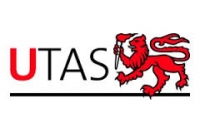As people with wide interests and personal passions, Bachelor of Arts students are often doers, thinkers, and problem-solvers: people who don’t shy away from a good discussion, a chance to argue a case, shift perspective or contribute to social change.
Choose from more than twenty possible specialisations across English; Global Cultures and Languages; History and Classics; Philosophy and Gender Studies; Sociology and Criminology; Politics and International Relations; Journalism, Media and Communications; and more from outside the College of Arts, Law and Education.
Tailor your study even further to suit your own ambitions and interests with the ultimate, flexible university degree. Dive deeper into your specialisation, or broaden your knowledge across other areas of interest by selecting units from across the University of Tasmania*.
Develop language skills in a native-speaking environment with our Short Term Overseas Study programs, undertake cultural or media research overseas, or pursue professional placement opportunities by volunteering in non-government organisations.
From 2018 onwards, you have more flexibility and choice in how your degree is structured, with real-world learning embedded, and the option to apply upfront for an integrated Applied, Research or Professional Honours year. This degree is part of A New State of Mind we are creating through our new curriculum.
With many specialisations offered through the School of Humanities and School of Social Sciences, this degree is an opportunity to interpret human culture and behaviour, from different perspectives and periods, and to understand your own experience, identity and values.
The Bachelor of Arts will equip you with a range of specialised and transferable skills that are highly sought after by employers: creative thinking, respect for multiple perspectives, and the ability to work effectively in a team environment.
The Bachelor of Arts is your ultimate springboard into a wide range of careers and further study options. The Bachelor of Arts is also a popular choice as a combined degree with Law, Fine Arts, Business, and Science, because it provides valuable context for any specialist area of study.
Modern workplaces are invariably changing; responding to economic, political and social forces, which means employees need the basic intellectual capacities to adapt to change, understand intercultural differences, thoughtfully challenge assumptions, and think objectively.
Employers depend on people who are effective communicators and decision-makers, with demonstrable skills in critical thinking, problem solving, research and investigation. These abilities are fundamental for all Arts graduates, who have gone onto diverse careers including:
Advocacy and counselling
Arts and heritage
Business
Communications and public relations
Education
Linguistics
Finance
Foreign relations and diplomacy
Healthcare and healthcare ethics
Historian
Human resources management
Information technology
Interpreter or translator
Journalism and publishing
Law
Manager in private and public enterprises
Marketing and advertising
Philosopher
Police and armed forces
Politics and public policy-making
Psychology
Public health and welfare
Researcher
Social work
Trade and foreign exchange
Tourism and travel operator
Writer


